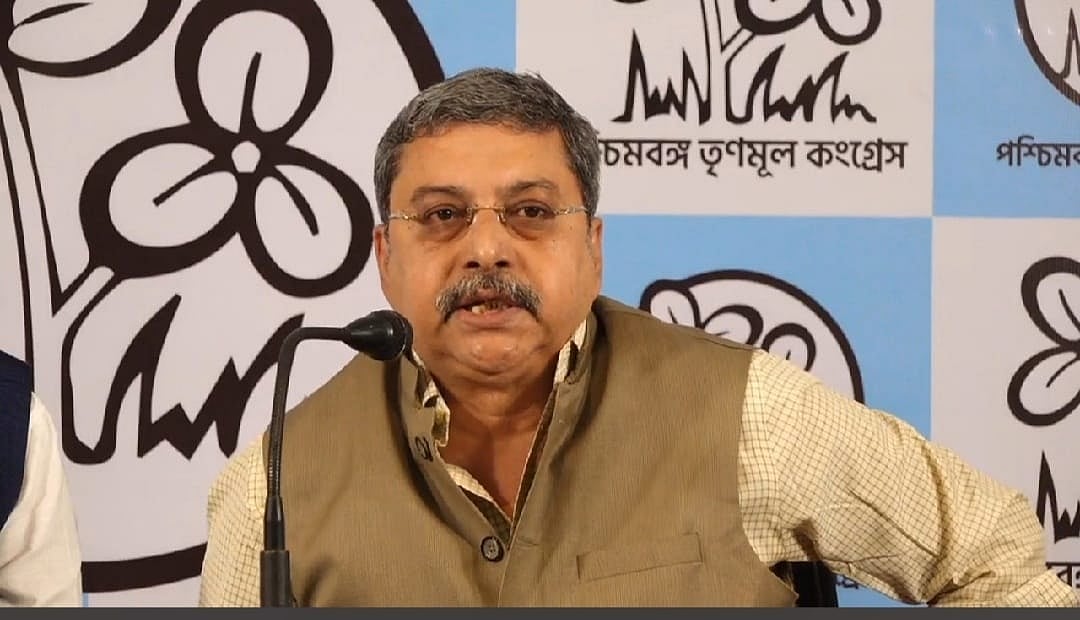The All India Trinamool Congress (TMC), West Bengal’s ruling party, is unraveling at a perilous moment. A recent public spat among its MPs—Kalyan Banerjee targeting Mahua Moitra, Kirti Azad, and Saugata Roy—has laid bare deep-seated divisions.
The clash, which erupted at the Election Commission office and spilled into a party WhatsApp group, is now before Mamata Banerjee. With the Bengal Assembly election less than a year away, this infighting could not have come at a worse time for a party already battered by controversies like the teachers’ recruitment scam. The TMC is increasingly a house divided, driven by unchecked personal ambitions from booth workers to MPs. Once, Mamata Banerjee’s iron grip kept the party in line.
Leaders like Subrata Bakshi, Mukul Roy, and Partha Chatterjee wielded influence but never challenged her supremacy. That unity has frayed. Abhishek Banerjee, Mamata’s nephew and a rising power center, has shifted the dynamic. Moitra and Azad, seen as his allies, stand in contrast to Mamata loyalists like Kalyan Banerjee. This rift, once whispered, is now public—fueled by leaked videos and chats that the BJP has gleefully amplified. The timing is dire.
The 2026 Assembly election is looming, and the TMC is reeling from the teachers’ recruitment scam. The Supreme Court’s recent ruling scrapped over 25,000 teaching jobs, a fall-out of the irregularities in the 2016 hiring process under TMC rule. Top leader Partha Chatterjee, the former Education Minister, languishes in jail, and the verdict has left thousands jobless, sparking protests and outrage. Opposition parties— the BJP, the CPI(M), and the Congress — are demanding Mamata’s resignation and painting her government as corrupt and incompetent. This narrative of infighting only strengthens their hand.
Two fault lines define this clash. First, the old guard versus newcomers: Kalyan Banerjee, a veteran of the anti-CPI(M) struggle, has scorned Moitra and Azad—late entrants from the Congress and the BJP, respectively—for lacking grassroots credentials. Second, among the old guard, Kalyan and Saugata Roy, both anti-CPI (M) warriors, are competing to prove their loyalty to Mamata. The WhatsApp spat, with its sharp barbs, shows how personal rivalries are eclipsing party discipline. What was once a united front against external foes is now a factional free-for-all. Mamata’s control, once absolute, appears to be slipping.
The rise of Abhishek as a parallel power center has emboldened cliques within the TMC, amplifying tensions. The party’s sweeping 2021 victory masked these cracks, but they’re now impossible to ignore. From grassroots squabbles to parliamentary feuds, personal ambition is trumping collective purpose. The teachers’ scam has already dented TMC’s credibility; infighting could fracture its electoral machinery just when unity is paramount. The opposition stands to gain most. The BJP, eyeing Bengal as its next big prize, is already weaponizing the TMC’s woes—be it the recruitment scandal or this public bickering. With less than a year to go, every misstep erodes Mamata’s narrative of stability and welfare.
The CPI(M) and Congress, too, sense an opening to claw back to relevance. If the TMC splinters further, its 215-seat haul from 2021 could slip away. Mamata must act decisively. Her past interventions—sacking rebels or brokering peace—kept the TMC intact. Now, she faces a test of leadership: rein in the factions or risk ceding ground. Whether she opts for discipline (like ousting Kalyan from his Lok Sabha whip role) or reconciliation, delay is not an option. The party she built from scratch is at a crossroads, battling external scandals and internal strife. With elections nearing, Mamata’s strong stand is not just necessary— it’s urgent. The TMC’s survival depends on it. The author, a columnist and research scholar, teaches journalism at St. Xavier’s College (autonomous), Kolkata.
His handle on X is @sayantan_gh.
